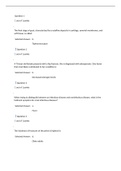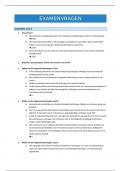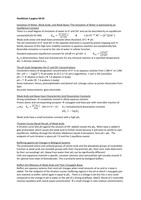Samenvatting
Summary International Organization 1 & 2 - Week 6: Lectures and readings
- Instelling
- Rijksuniversiteit Groningen (RuG)
This document contains a comprehensive summary of all readings and overview of the most important lecture notes for lectures 11 and 12 for Week 6 of the first-year IRIO course International Organization 1 & 2 at the RUG. In case you are unable to view (parts of) the document properly, please contac...
[Meer zien]








